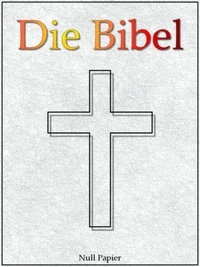The Large and Small Catechism of Martin Luther, pivotal texts for Lutheran doctrine, present a profound exploration of Christian faith, sacramental theology, and ethical living. Composed during the Reformation, Luther's catechisms articulate core tenets for the instruction of laypeople and clergy alike, employing a clear and accessible style designed to inspire understanding and devotion. The Large Catechism serves as a comprehensive guide for pastors, while the Small Catechism offers a succinct overview for families, encapsulating essential beliefs about the Ten Commandments, the Apostles' Creed, and the Lord's Prayer, all underscored by Luther's emphasis on personal faith and communal worship.
Martin Luther, a seminal figure of the Protestant Reformation, was motivated by a desire to make the teachings of Christianity understandable to the common person. His discontent with the complexities and perceived corruptions of the medieval Church drove him to distill the essence of Christian doctrine. Through these catechisms, he aimed to equip individuals with the tools necessary for personal faith and moral living, reflecting his profound commitment to scriptural authority and the priesthood of all believers.
The Large and Small Catechism is essential reading for anyone interested in theology, church history, or the foundations of Protestant belief. Luther's work not only enriches our understanding of Christian doctrine but also invites readers into a deeper relationship with their faith. Whether for personal study or scholarly engagement, these texts remain a vital resource for spiritual growth and ecclesiastical reform.
The Large and Small Catechism of Martin Luther, pivotal texts for Lutheran doctrine, present a profound exploration of Christian faith, sacramental theology, and ethical living. Composed during the Reformation, Luther's catechisms articulate core tenets for the instruction of laypeople and clergy alike, employing a clear and accessible style designed to inspire understanding and devotion. The Large Catechism serves as a comprehensive guide for pastors, while the Small Catechism offers a succinct overview for families, encapsulating essential beliefs about the Ten Commandments, the Apostles' Creed, and the Lord's Prayer, all underscored by Luther's emphasis on personal faith and communal worship.
Martin Luther, a seminal figure of the Protestant Reformation, was motivated by a desire to make the teachings of Christianity understandable to the common person. His discontent with the complexities and perceived corruptions of the medieval Church drove him to distill the essence of Christian doctrine. Through these catechisms, he aimed to equip individuals with the tools necessary for personal faith and moral living, reflecting his profound commitment to scriptural authority and the priesthood of all believers.
The Large and Small Catechism is essential reading for anyone interested in theology, church history, or the foundations of Protestant belief. Luther's work not only enriches our understanding of Christian doctrine but also invites readers into a deeper relationship with their faith. Whether for personal study or scholarly engagement, these texts remain a vital resource for spiritual growth and ecclesiastical reform.

 , qui est-ce ?
, qui est-ce ?